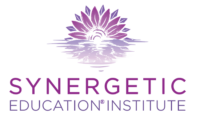As you reflect upon your current or previous work with educators, now through the lens of a developmental perspective, what thoughts or new perspectives come to mind? Does using this lens impact your thinking and/or behavior?
Reflecting upon my current and previous experience with educators, the developmental mindsets paradigm makes a lot of sense. It is certainly the case that not all educators are in the same place in terms of their curiosity, interest, and readiness for this information, and the questions (“What do they see and not see? What information do they have? What relationships are they aware of?”) are useful for helping to determine the teacher’s viewpoint and perspective, and to identify starting points. This paradigm seems very helpful to me in several respects: It helps me to “meet them where they are” and facilitate acceptance and a growth mindset toward the teacher, which helps to create a neuroception of safety; it recognizes that the educator’s behavior also “makes sense” and avoids increasing their dysregulation with judgments and ‘shoulds;’ it helps to develop the relationship; and it helps to orient the relationship and the interactions toward the information, content, and pacing that will be most useful to the individual. Additionally, I think that the initial focus on a felt experience (creating a moment of self reflection and reflective awareness) and serving as the external regulator in this paradigm is very important; addressing a lack of ‘buy in,’ in particular, by giving them a felt experience of having to do a cognitive activity under stress is going to be significantly more effective than merely presenting them with information and suggestions. This paradigm impacts my thinking by reminding me that creating relationships, opportunities for self reflection, and serving as an external regulator are likely to be the most important aspects of our work (and the most unique aspect of this approach).

